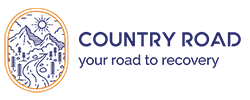The approach to modern addiction treatment, as we know it, began over 70 years ago. Over the years modalities have evolved and innovations have changed the clinical landscape of care. Despite all this, myths and misinformation continue to propagate.
We’ll address some of the most common myths surrounding addiction treatment and recovery. We’ll draw insight from the Addiction Truths podcast, where addiction professionals and people in recovery share their journeys.
Is It True That Addiction Is Just a Choice?
The idea that addiction is some kind of moral failing and something that people decide to fall into has been around for as long as people have been drinking fermented fruit. It’s also fundamentally untrue. Addiction is not a lack of willpower.
Addiction is classified as a disease by the American Medical Association. It is a chronic, progressive, and fatal disease of the brain. Country Road’s Clinical Director Derek Talkington shared a story about a family member who was angry at their loved one for "choosing" alcohol over their family. However, he explained, "They've got a disease. I don’t think it’s fair to say that they chose alcohol over you or over your children, even though it feels that way."
This shift in perspective is crucial. Addiction affects impulse control and decision-making, making it incredibly difficult for individuals to stop using substances on their own. It literally rewires their brain. Understanding this does not mean excusing harmful behavior, but it does mean approaching addiction with the right tools—such as treatment and support—rather than judgment.
Is It True That Rehab Is Just a 30-Day Fix?
Unfortunately, addiction doesn’t have an “on-off” switch that can be flipped. That’s why 30 day addiction treatment programs don’t claim to “cure” addiction. Substance use disorder is a complex disease that requires more than just physical detox and a few days of abstinence.
True healing involves learning coping mechanisms, addressing trauma, and rebuilding relationships, all of which take time. As Derek explains, "Residential treatment removes the addict and alcoholic from all the distractions of life, helps them focus on themselves, but it also provides temporary relief for the family from the chaos." This time away is critical, not only for the individual in treatment but also for their loved ones, who need space to process and begin their own healing journey.
Recovery does not happen overnight, but with continued treatment and support, long-term sobriety is possible.
Is It True That Families Should Stay Out of It?
Addiction is a family disease, meaning it affects everyone in the household and beyond. Recovery works best when loved ones also engage in their own healing process. Kathy, a podcast guest, shared her experience with her cousin’s addiction. "I was definitely one of those people where I was like, ‘What is wrong with you? Stop it. Don’t you realize what you’re doing to yourself? Don’t you realize what you’re doing to your family?’"
Over time, she realized that addiction was not just affecting her cousin—it had impacted her own well-being as well. She had spent so much time worrying and trying to control everything that she did not recognize her need for support. It was not until she attended Al-Anon meetings and learned about boundaries that she truly began to heal. Families play a crucial role in recovery, but they must also take care of themselves.
Is It True That People in Recovery Are Just “Damaged” Forever?
People that suffer from the disease of addiction are no more “damaged” than someone battling cancer is “damaged.” If anything the opposite is true. Many people in long-term recovery find that they are healthier, stronger, and more self-aware than ever before.
"Addiction has given me a life that I only could have dreamed of. And that’s a weird thing to say… but really, recovery from addiction has given me a life I couldn’t have imagined."
Recovery teaches individuals valuable coping skills, builds resilience, and fosters a sense of community. Similarly, families who engage in their own healing process often find that they come out stronger, with healthier relationships and a new perspective on life. Rather than being permanently damaged, people in recovery can thrive, using their experiences as a foundation for growth and fulfillment.
The Facts
With the right treatment, education, and support, lasting recovery is possible for both individuals and their families. If you or someone you love needs help, do not wait. Country Road is here to help.


